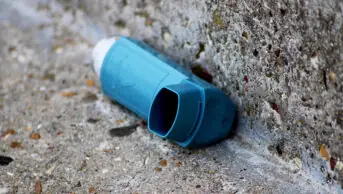
MAG/Shutterstock.com
Following some thought-provoking presentations from Pharmacy Declares! at the Clinical Pharmacy Congress in September 2021, I was inspired to take action to promote sustainability and greener prescribing initiatives. Working as a clinical pharmacist across GP practices in Gloucestershire, I see that medicines optimisation work carried out by pharmacy teams frequently delivers sustainability gains and contributes to the greener prescribing agenda. However, are we including this message around greener prescribing in our shared decision-making conversations with patients and colleagues? This is a vital approach if we are to address the biggest emergency of our time — the climate emergency is a health emergency.
We have a responsibility to bring the climate emergency to the top of the agenda
As respected healthcare professionals, we have a responsibility to bring the climate emergency to the top of the agenda and have a huge opportunity to influence and effect change to support the NHS aim of carbon net zero by 2045. A ‘light bulb’ moment for me was realising that approximately 61% of the carbon footprint in primary care is attributable to medicines (manufacture and use), of which 13% is from inhalers.
I wanted to raise awareness of the climate emergency among patients and colleagues, highlighting what we could all do to improve sustainability — and not just through prescribing. The first thing I did was to get ‘carbon literate’ so I could clearly explain what was meant by a carbon footprint, how this was calculated and the urgent need to reduce this to curb global heating. I enrolled on the Centre for Sustainable Health course, which supports the running of your own quality improvement project. When I joined Gloucestershire’s newly formed greener practice group, I discovered the Green Impact for Health (GIFH) scheme. This ticked all the boxes I had been searching for.
GIFH is a collaboration between the Royal College of General Practitioners, Health Education England, the University of Bristol and the National Union of Students (NUS). It is a sustainability accreditation scheme (Green Impact Award [GIA]) with an audit and awards element, designed specifically for general practice. The free online toolkit looks at all areas of the carbon footprint in a GP practice and lists more than 100 actions to improve environmental sustainability and quality, as well as saving money.

Anyone can sign up their practice and you can test drive the kit with the username ‘gifh@greenimpact.org.uk’ and password “Testtoolkit1!”’ Ideally, each practice should have a sustainability lead/coordinator facilitating whole team engagement to have the best results. It can be a very positive team building exercise if you also involve patients.
There are four award levels from bronze to carbon. As an example, a total of 75 out of 100 points must be reached to achieve the bronze award. Comments and supporting evidence are uploaded on to the platform for audit. Table 1 lists the prescribing elements, which in part link to the Impact and Investment Fund (IIF) targets.
Armed with this information, and after discussion with a GP practice that had completed the bronze award, I enrolled one of my GP practices and started gathering information to submit as evidence. I was quick to point out that much of what was needed was raising awareness and changing conversations, and that this did not incur extra work. Simple measures such as photocopying on both sides of paper, purchasing Fairtrade tea and coffee or switching electrical equipment off at the wall each evening are all contributory.
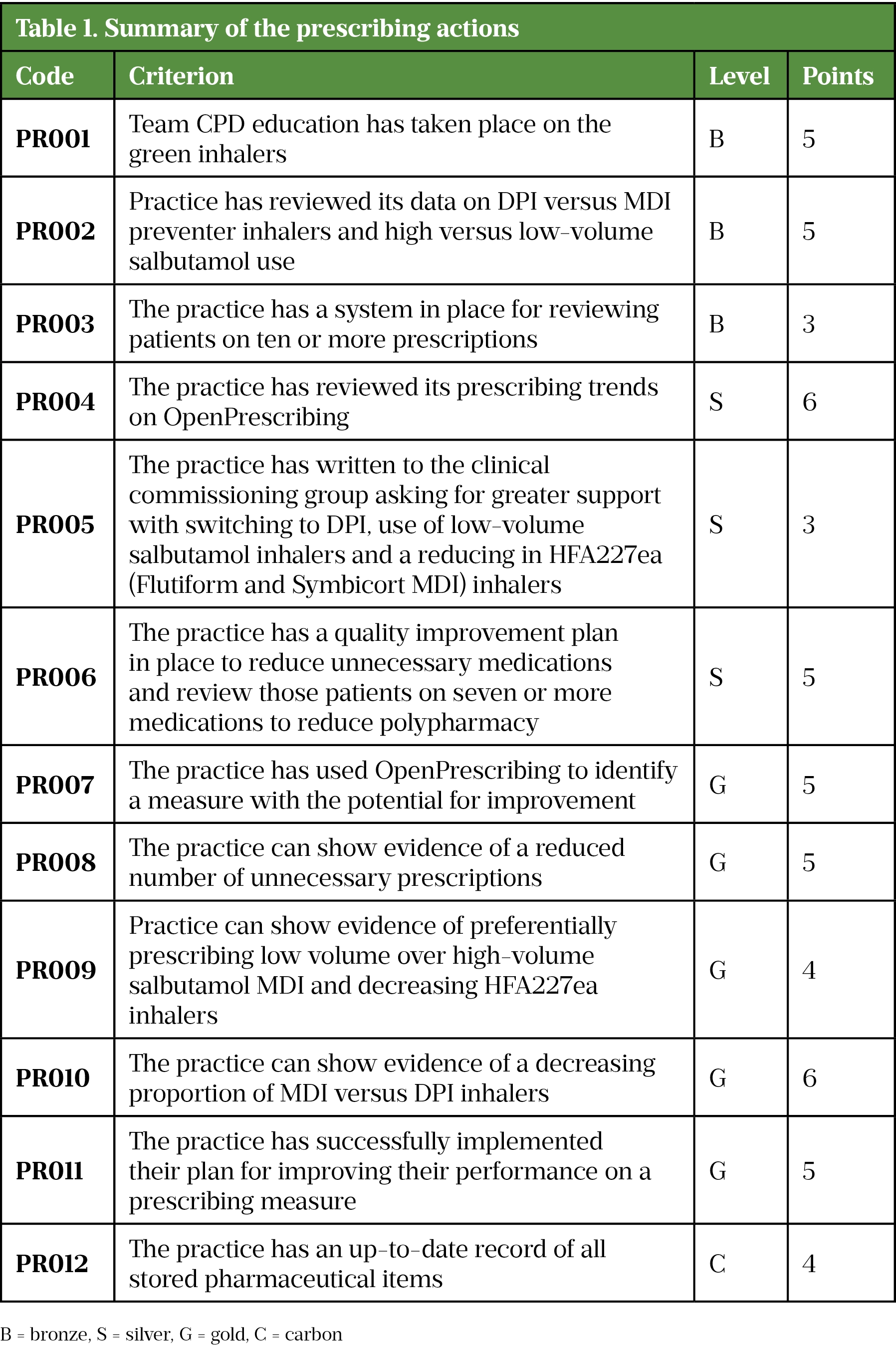
I also joined the ICS sustainability meetings where information was coordinated to produce the ICS green plan. Despite medicines and pharmaceuticals representing approximately 25% of the carbon footprint and 78% of prescribing taking place in primary care, there had been no primary care pharmacist representation in the group. A breakthrough has been financial incentivisation by the ICS for all of the 72 GP practices to sign up to GIFH and the GIA. Some GP practices were early adopters of the scheme and had already achieved a bronze award. Results from one practice resulted in 53.9 tonnes of carbon dioxide (CO2) savings per annum.
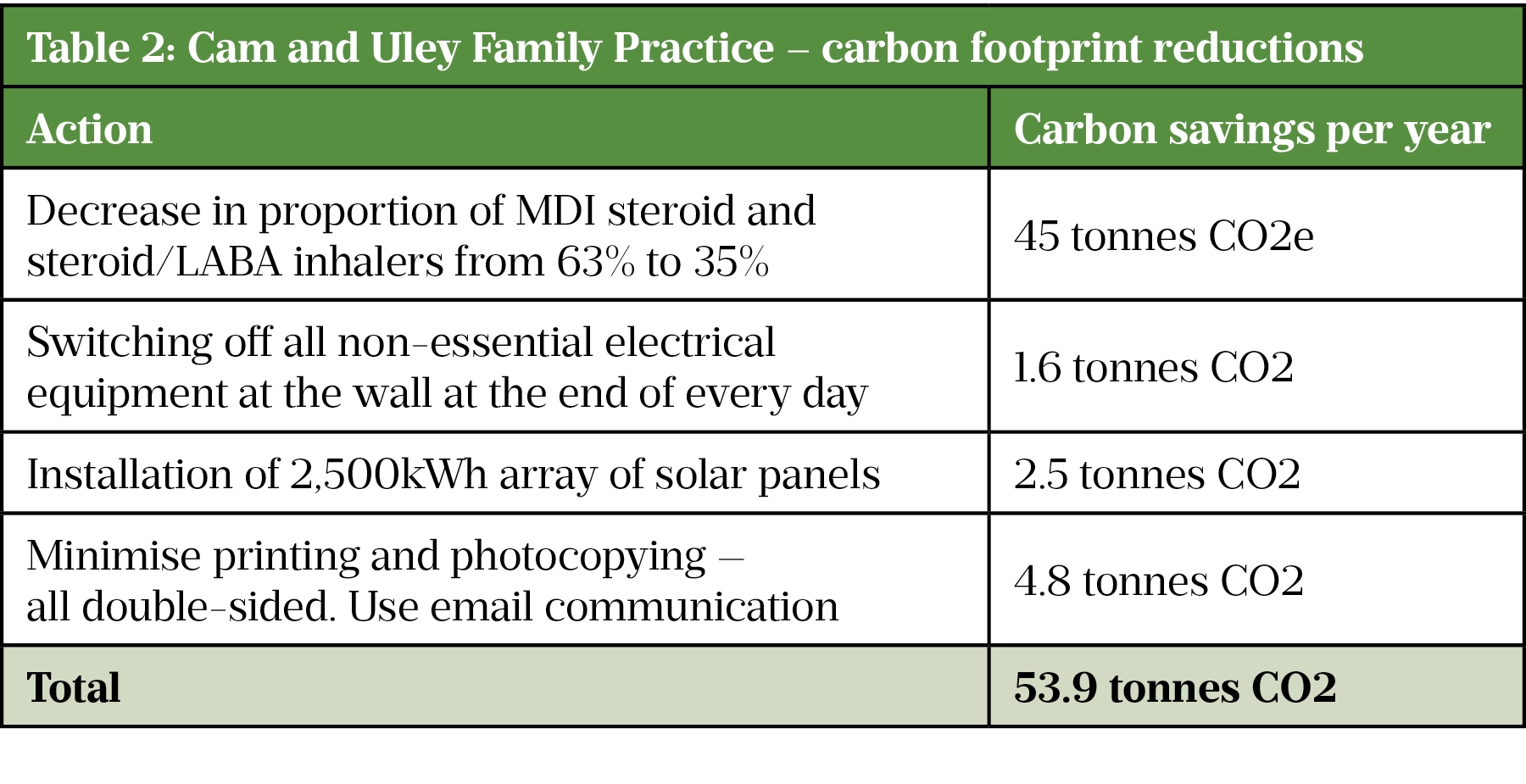
This serves to illustrate the significant impact of prescribing changes that accounted for 85% of carbon reduction.
To put these figures into perspective, examples of carbon dioxide footprints are given in Table 3. You may wish to calculate your own carbon footprint too.
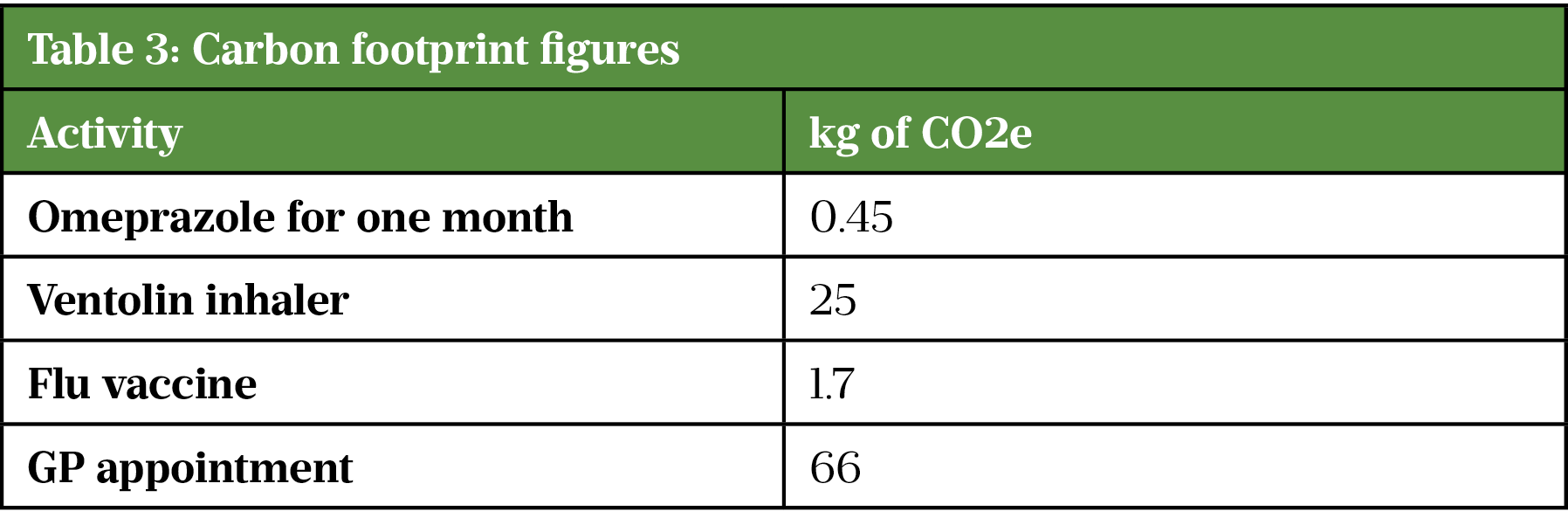
Like other members of our greener practice group, I will be involved in engagement events with GP practices to support the sign up and roll out of the GIFH/GIA.
We will update practices on their progress through our greener practice prescribing subgroup quarterly bulletins. We produced our first bulletin, reviewed by our medicines optimisation team, at the end of March 2022. This included helpful tips on improving sustainability, through waste reduction initiatives, communication to patients about repeat prescriptions and liaising with community pharmacy. We also used the powerful open prescribing greener measures data on inhalers linked with IIF ESO1 to produce a comparative graph for practices to see their progress.
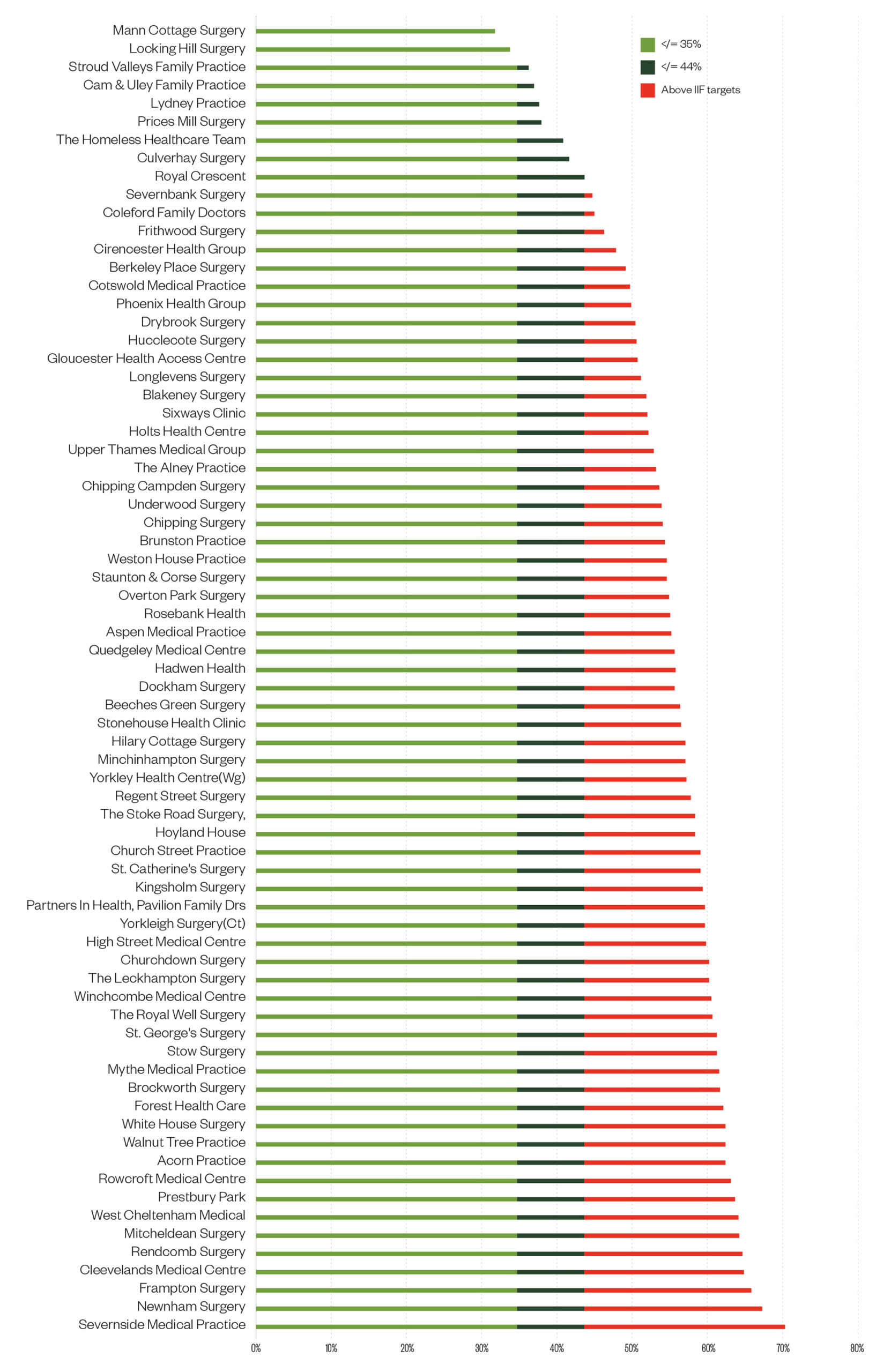
In addition to cost savings and reducing carbon dioxide production, there are direct health benefits, such as improved asthma control. There will be reduction in waste, which in turn impacts positively on macro pollution (packaging) and molecular pollution (pharmaceuticals in the environment). Further actions that could be taken are messages promoting the importance of returning unwanted medication and inhalers to the community pharmacy for safe disposal, and considering having an empty blister pack collection point in the surgery. The greener practice website is a good source of information and has a newly launched ‘high quality low carbon asthma care’ toolkit that has been approved by the NHS England and NHS Improvement inhaler working group.
Working to improve sustainability is energising and rewarding. It has been heartening to see the engagement of individuals and practices. It is the beginning of a journey towards net zero, but momentum is gathering, with plans in place for a sustainability week across all GP practices later in 2022.


